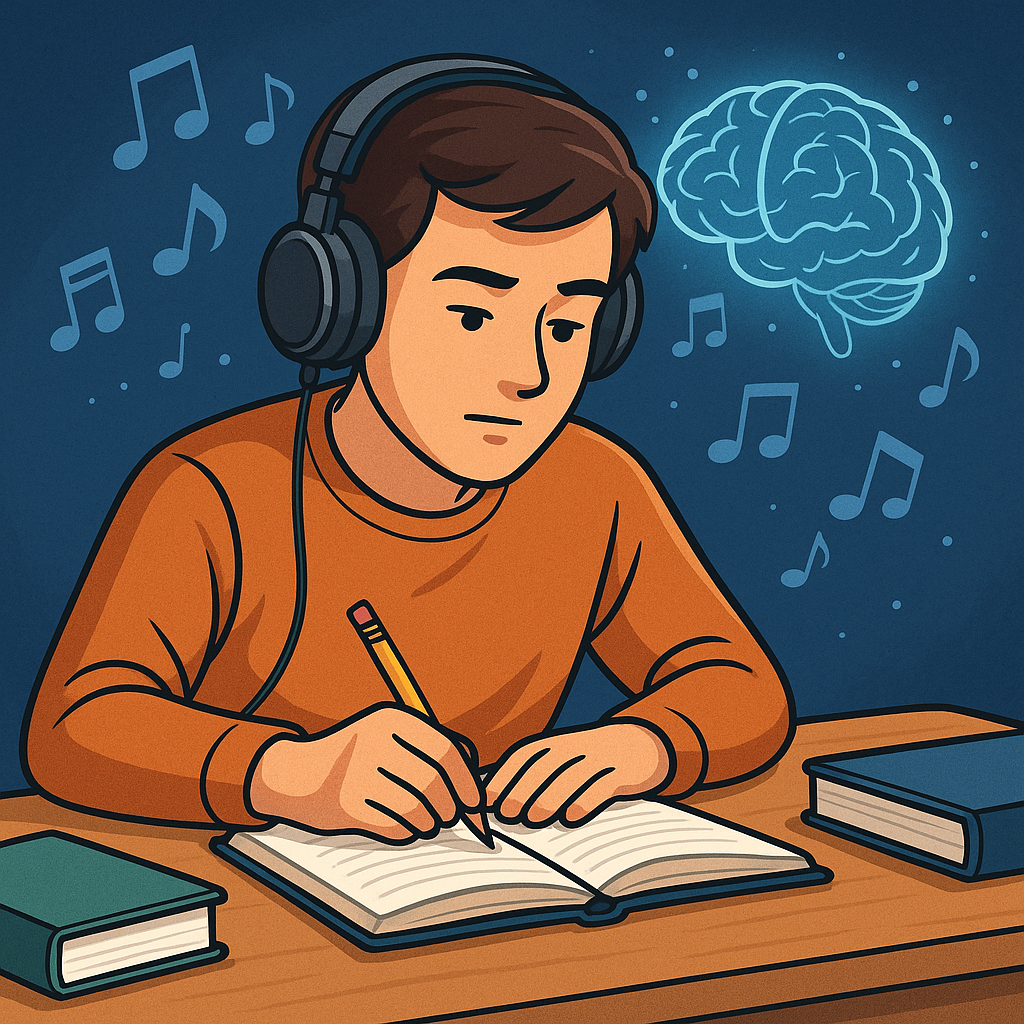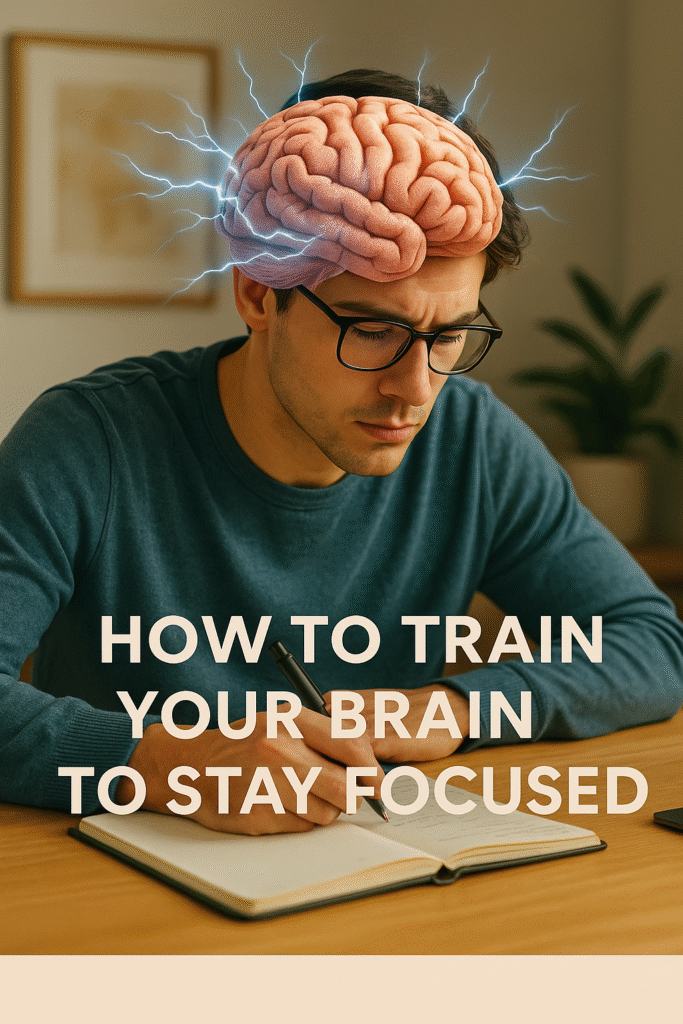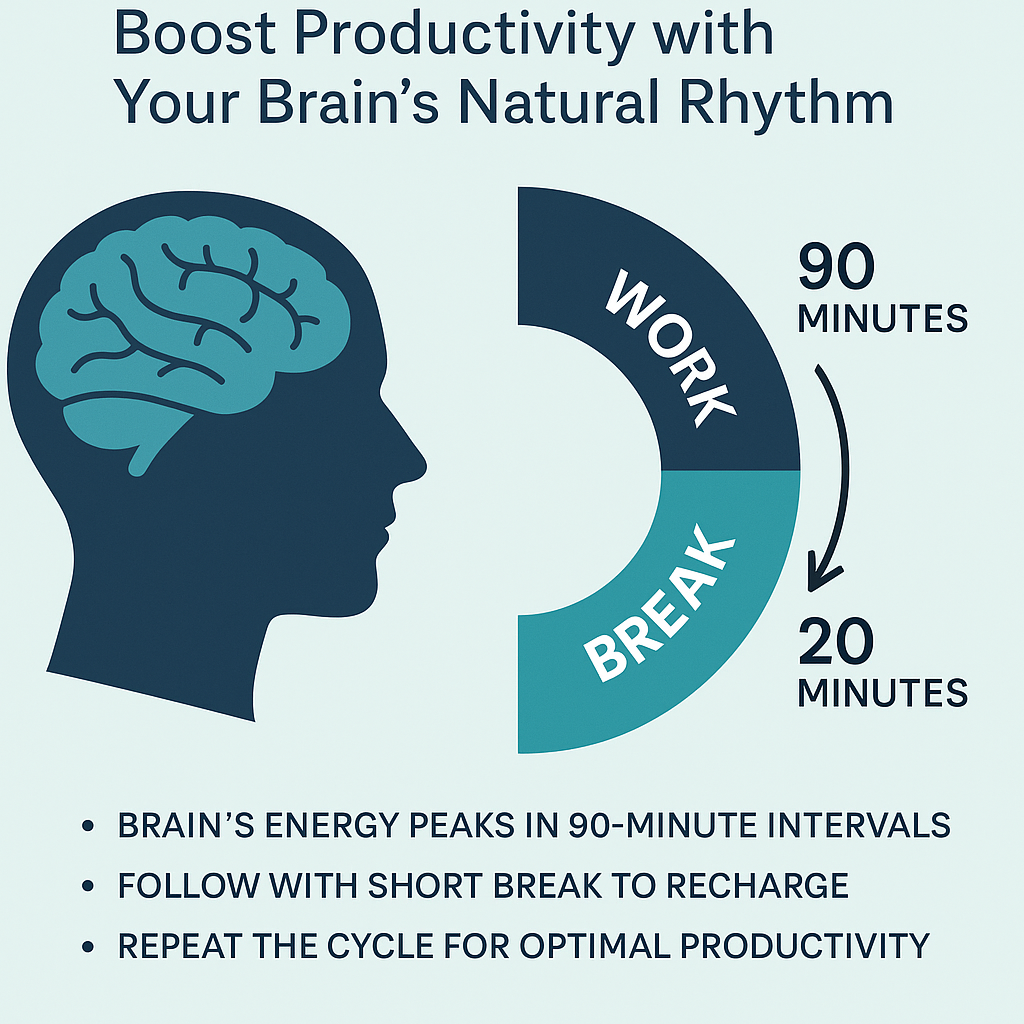🎓 The Student Dilemma: To Listen or Not to Listen?
Many students swear that playing their favorite playlist boosts their focus and motivation. Others say it’s a distraction. So who’s right?
Let’s explore what the science of learning and the brain actually says.
🧠 How Music Affects the Brain During Study
Music activates several parts of the brain:
- The auditory cortex processes sound
- The hippocampus links sounds to memories
- The dopamine system gets triggered when we enjoy what we hear
This means music can:
- Improve mood
- Reduce stress
- Potentially boost cognitive performance — under the right conditions

✅ When Music Can Help You Study
1. Repetitive Tasks (e.g., note-taking, reviewing flashcards)
- Music (especially instrumental) can keep you motivated
- It reduces perceived effort
2. Boring or Low-Energy Moods
- Upbeat or ambient music can elevate arousal levels
- Helps re-engage the brain for low-stakes tasks
3. Blocking Distracting Noise
- Studying in a noisy environment? Music acts as a white noise shield
- Best with lo-fi beats, classical, or ambient electronica
🚫 When Music Can Hurt Your Focus
1. Language-Heavy Work (e.g., reading, writing, complex problem-solving)
- Lyrics can interfere with verbal processing
- The brain tries to multitask — lowering retention
2. Unfamiliar or High-Energy Music
- New songs make your brain pay more attention
- It’s harder to concentrate if your attention is split
3. Overstimulation
- If you’re sensitive to noise, even background music might overload your senses
🎶 What Type of Music is Best for Studying?
| Type of Music | Best For | Notes |
|---|---|---|
| Lo-fi beats | General studying | Steady tempo, minimal distraction |
| Classical | Reading, writing | Especially Baroque (60–80 BPM) |
| Ambient/electronic | Coding, creative work | Calms nerves, no lyrics |
| Nature sounds | Relaxation | Rain, waves, birdsong = reduced stress |
| Video game soundtracks | Deep focus | Designed to enhance immersion |
📱 Tools & Playlists to Try
- 🎧 LoFi Girl – YouTube
- 🎵 Spotify: “Deep Focus,” “Study Beats,” “Brain Food”
- 📲 Brain.fm (AI-generated focus music, scientifically backed)
- 🎼 Noisli or Calm app for customizable ambient sounds
🧬 What Science Says
Research is mixed — but here’s the breakdown:
- A 2019 study from the University of Central Florida found that instrumental music had a positive effect on working memory and attention.
- A 2021 study from Applied Cognitive Psychology showed that silence or low-complexity music produced better results than lyrical or high-energy tracks.
- Mood improvement = better studying. So music may help indirectly by putting you in the zone.
The key: match your task type + music type + mood.
🧠 Tips for Using Music Effectively While Studying
- Use headphones to stay in your mental bubble
- Create a study-only playlist to train your brain
- Keep volume low — background, not center stage
- Experiment to find your best rhythm
- Take breaks in silence to reset cognitive load
💬 Final Takeaway
Music can be a powerful study tool — if used strategically. It isn’t about whether music helps everyone — but whether the right kind helps you.
Want to focus better? Try building a study playlist tailored to your energy level and task type. Your brain might just thank you with better grades.




